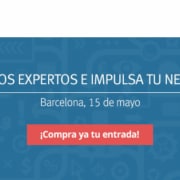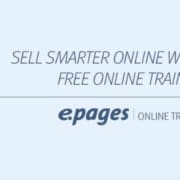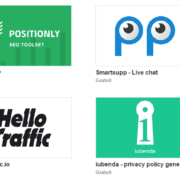Bull’s Eye: Planning AdWords Campaigns
 How do I draw attention to my shop? A lot of online merchants ask themselves this very question upon placing their ePages rental shop online. One of the most popular answers to this question is Google AdWords. As explained in our first tutorial, Google AdWords offers an ideal opportunity to capture the attention of potential customers as they have just begun their online search for products. Yet AdWords campaigns are not always successful. Why is this the case?
How do I draw attention to my shop? A lot of online merchants ask themselves this very question upon placing their ePages rental shop online. One of the most popular answers to this question is Google AdWords. As explained in our first tutorial, Google AdWords offers an ideal opportunity to capture the attention of potential customers as they have just begun their online search for products. Yet AdWords campaigns are not always successful. Why is this the case?
Google AdWords provide shop operators an invaluable advantage compared to conventional advertising campaigns by addressing the concrete needs of potential customers. As a shop operator, you thus have a chance to focus very precisely on your target group and appeal to them directly.
So far, so good. In the pursuit of luring as many users as possible to their website, however, many online merchants unfortunately overlook that simple principle. “But I’d fail to attract 80 percent of potential customers if my ads are too specific,” is a beloved objection to segmented AdWords marketing, along with the sometimes arduous work it entails. Instead of addressing specific search queries with tailored ads, a lot of online merchants opt for generalised ad texts which correspond to basic keywords. In so doing, shop operators quickly lose sight of a fundamental question:
“How do I sensibly structure my advertising budget?”
AdWords is practical for users, too. Instead of being forced to rummage through a great many search results, users see relevant results at a glance. The very fact that a merchant has paid for the ad tells the user that the link will lead to relevant information. Many users therefore notice AdWords ads and click on them.
Good for you as a shop operator. But a click on your ad does not constitute a purchase. Even when you do appeal directly to potential customers, a majority of them nevertheless will buy nothing on your website. A lot of users namely open several ad links at once. If a potential customer does not find the product straightaway they are looking for, then they will immediately close that window.
And that begs the question: what is more important? A high click rate — enticing a lot of people to visit your shop — or a high conversion rate, which means that a lot of users choose to buy from you? Let us briefly examine a statistical example.
General vs. specific: what yields more?
Let us suppose that your generally worded AdWords ad is displayed 10,000 times. Of these 10,000 users, 1,000 click on your ad text to visit your shop. If each click costs 10 cents, your advertising costs amount to 100 euros. Not bad for 1,000 willing buyers, right? Let us continue to compute. The average conversion rate (the ratio of your shop’s visitors to your shop’s customers) is between three and six percent. Because your ad is general, you can present only a general product page. Your customer must therefore explore your shop — which lowers the conversion rate. Consequently, we must assume that your campaign will enjoy only limited success. Assuming a conversion rate of three percent, 1,000 visitors to your shop will result in 30 purchases. In this scenario, your advertising costs would be about 3 euros per purchase.
Let us now apply the same statistical approach to a targeted AdWords ad. Because fewer people will enter a specialised term into a search engine, your ad will appear less frequently. Let us assume that the aforementioned 80% of all users will miss your ad because of its specificity. Your ad will thus be displayed only 2,000 times instead of 10,000. As above, 10 percent of users click on your ad text; in turn, 200 potential customers visit your shop. Because your ad is displayed less often and also generates fewer clicks, your per-click AdWords costs are lower. Let us assume that each click of your ad costs only half as much: 5 cents. This would entail spending 10 euros for the 200 visitors to your shop. It is safe to assume that these visitors will purchase more on a percentage basis, for they were drawn to your shop by targeted advertising. At a conversion rate of six percent instead of just three percent, 200 visitors to your shop will result in 12 purchases.
Quadrupled sales thanks to targeted marketing
An advertising budget of 100 euros will permit you to launch nine additional targeted AdWords campaigns. Instead of 30 purchases via a general ad, the direct targeting of potential customers results in 120 purchases. In other words, you can use the same budget to quadruple sales via targeted marketing.
It ought to be clear now that you should always strive to address (potential) customers in accordance with their needs. It is worth investing the effort to create and pay for tailored ads for individual products. Carefully consider which keywords you specify for your AdWords campaigns. Vague keywords such as “laptop” result in lower conversion rates than, for example, specifying a particular model such as “Dell Latitude laptop”.
| Bad Adwords ad | Good Adwords ad |
 |  |
4 designing tips
- Your ad text should feature the keyword in the heading to convince customers that your shop sells precisely what they need.
- Your ad text should entice potential customers to your shop: Promise customers something they cannot refuse!
Poor: “The expert for laptops”
Better: “Sale: 20% discount on all Dell notebooks” or “Free shipping of all Dell notebooks”.
- Open the back door! Online shops are different from brick-and-mortar shops. The main entrance — your home page, in other words — is not necessarily the best choice for an ad campaign. Your customers instead prefer entering via the back door and learning right away about the items which interest them. You should therefore go to the trouble of creating different links for every ad. If a potential customer wishes to buy a Dell laptop, than a proper ad will guide them directly to the proper place in your shop so that they do not have to click their way through your entire shop. You will thus increase the conversion rate within your shop. Never forget that a customer can leave your shop at any time to visit someone else’s shop!
- Use your URL as an ad. Version 6.0.7 of your ePages rental shops allows you to use Tiny URLs. In lieu of a cryptic URL such as "www.laptopshop.de/epages/61504599.sf/en_GB/?ObjectPath=/Shops/61504599/Categories/"Lemote product" linking to a product, you can in future use do-it-yourself URLs such as "www.laptopshop.de/dell-special_offers". This will indisputably benefit your AdWords campaign by convincing potential customers that your shop is the perfect place to be.
Volker Schwarz
Volker Schwarz studied German, History and Politics at the Ruhr-Universität Bochum. From 2004 to 2009 he worked as a freelancer for several marketing and communications companies in Hamburg, including e-commerce companies. Between August 2009 and December 2011, he worked as an online editor at ePages.




Leave a Reply
Want to join the discussion?Feel free to contribute!